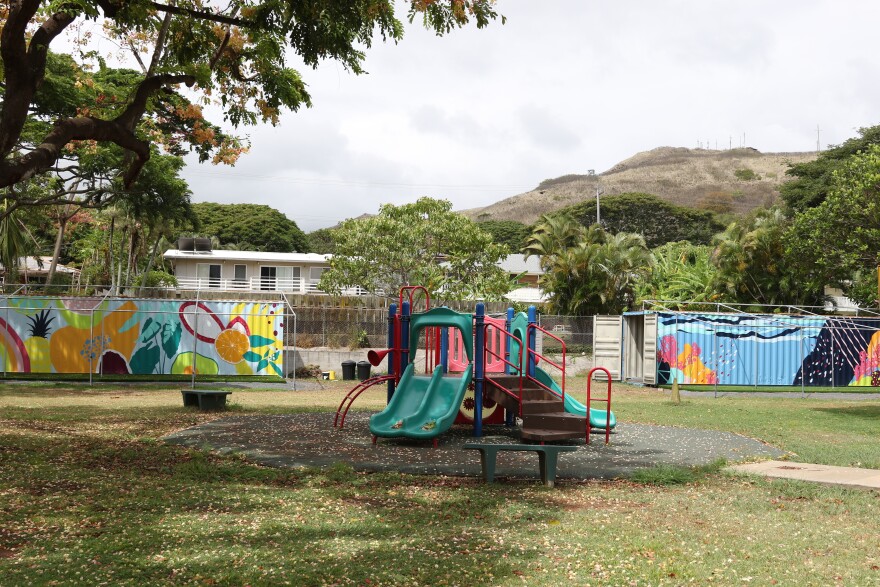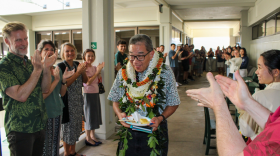The 2022 edition of the Annie E. Casey Foundation's KIDS COUNT Data Book was released Monday. The report gathers data from the U.S. Census Bureau and U.S. Department of Education, and compares states on the same indicators.
This year's report ranked Hawaiʻi 22nd in the nation. That is a four place improvement from last year's ranking.
Traditionally, the state does well when it comes to keiki health and family and community indicators. These include measures in baby health, health insurance coverage, and family dynamics.
Hawaiʻi ranked 5th in child health, and 15th in family and community.
"But in two of the main domains — economic well-being and education — we are in the bottom third of the nation," said Nicole Woo, director of research and economic policy for the advocacy group Hawaiʻi Children's Action Network.
In those categories, Hawaiʻi ranked 34th and 35th, respectively.
Woo says data from the economic well-being indicator isn't entirely accurate. That's because the data for the Census Bureau's American Community Survey doesn't factor cost of living into its measure for the poverty rate.
Woo tells HPR the Census Bureau does have a supplemental measure, which provides a more accurate picture.
"When you look at the supplemental poverty measure, Hawaiʻi usually has a poverty rate that's in the top ten in the country," Woo tells HPR. "On the flip side, the official poverty measure, then what's only on income, which is used in all these different reports shows Hawaiʻi in the bottom ten for poverty levels. So we actually kind of flipped to the other side of the scale when you take in cost of living."
According to the report, roughly 37% of all children in the state, 111,000 keiki, lived in families that spent more than 30% of their income on housing — which is considered a high-cost burden.
When it comes to education, the report found 72% of the state's eighth graders scored below proficient math levels. The report estimates approximately 5,000 teenagers between the ages of 16 and 19 didn't attend school or work.
While the state ranks in the bottom third of the report, some progress is being made by the state.
"Policy makers recently made investments to expand access to early learning, as well as to be able to address the impacts of learning loss," said Ivette Stern, faculty member at the University of Hawaiʻi's Center on the Family.
"But there's clearly room for improvement. These investments not only need to be continued, but they need to grow, in order for us to be able to prepare our kids, this next generation, to lead the state."
One of the more concerning data points is the mental well-being of children, a relatively new set of indicators focusing on anxiety and depression.
"This year, the national data book folks decided that we really need to focus on mental health because there does seem to be a crisis happening in our nation," said Woo. "We have the separate indicators looking at depression and anxiety among children and youth comparing 2016 to the first year of the pandemic in 2020."
In Hawaiʻi, the rate of youth anxiety and depression rose 23% — affecting nearly 2,200 more keiki. The report does not explain what factors cause this jump.
Advocates say more can be done to improve the state's ranking — particularly in economic well-being.
"Hawaiʻi families felt the pandemic's effect, probably disproportionately, with one of the highest unemployment rates. We know from research that children growing up in families that are experiencing economic hardship, feel the weight of that stress," Stern told HPR. "We need to continue to provide our families with economic security, as well as improve access to affordable housing — which is one of the areas where we have continually done the worst."
"We know what works for children — providing quality universal early childcare, providing adequate budgets for our public schools, and making sure that our families have economic security and can afford to live here," Woo said.
"That might mean things like paid family leave, paid sick leave, higher wages and lower housing costs.
"One thing we know about mental health is that economic insecurity and housing instability contribute to stress and anxiety among children."




